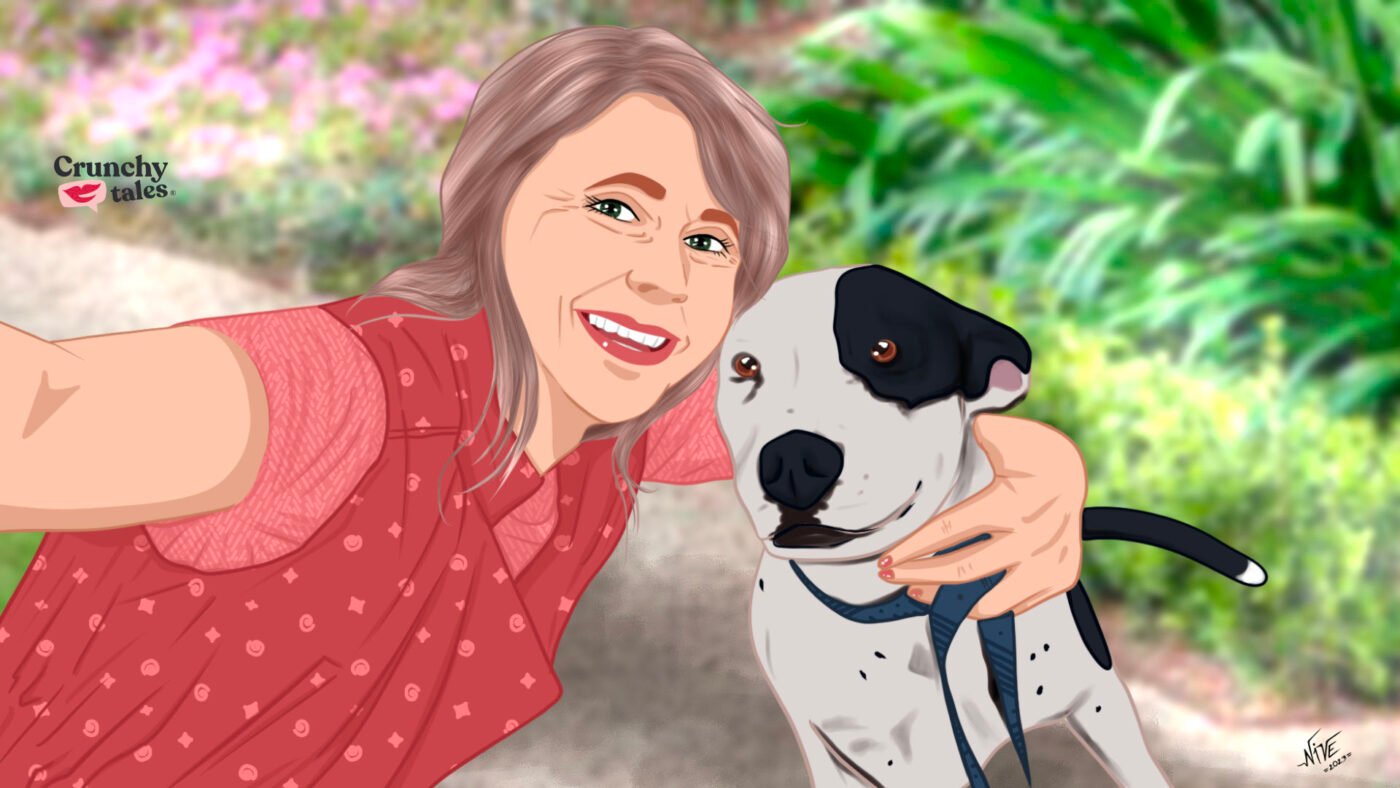First Time Pet Owner? 6 Essential Tips To Keep Your Dog Healthy for Many Years to Come
In the journey of life, there comes a point when we start to ponder what truly brings us happiness and fulfilment. And surprisingly, the answer might be found in the wag of a tail and the unconditional love of a furry friend. Yes, we’re talking about owning a dog.
In midlife, owning a dog can have a transformative effect on our mental well-being. Not only do dogs provide companionship and alleviate feelings of loneliness, but they also offer a myriad of emotional and physical benefits that can enhance our overall happiness.
Scientific research has shown that having a canine companion can lower stress levels, reduce the risk of depression, and boost our overall sense of well-being. The simple act of petting a dog releases endorphins, the body’s natural happiness hormone. Plus, owning a dog encourages daily exercise and outdoor activities, promoting a healthier lifestyle.
If you are a dog owner, or you aspire to be one, then you need to know that this relationship is a two-way street. Repaying the love and affection your pet shows you by keeping it happy and healthy is key.
So, if you’re searching for a way to increase your happiness and find more meaning in life, consider the pawsitive power of owning a dog and the following tips.
I’ve Brought Home A New Dog … Now What?
You definitely have a lot of questions if you’re starting your first dog ownership experience. As a general guideline, you should take your new puppy or adult dog to the vet for a wellness checkup during the first three days of ownership. Additionally, you ought to ease your pet’s move to its new residence.
Your new friend may also need a few days or even weeks to adjust to its surroundings and develop a relationship with you and your family. It might be easier for your dog to adjust if you establish a routine for them.
For your furry friend, knowing what to anticipate each day is comforting. Feed meals at the same time each day, arrange brief exercise sessions, and go for walks or other outside activities at the same time each day. The home rules should also be communicated and enforced clearly and kindly (for example, no dogs allowed on the sofa), and your dog should be lavishly praised and occasionally given treats for doing the right thing.
“Your new dog may sleep a lot in those first few days. He or she will want to check out all the new smells and investigate his/her new digs“, says experts at Dogs Out Loud. “Your dog won’t know what you expect from him/her, that you are going to feed him/her twice a day, or where to go potty, or that the cat box is strictly off limits and so is the leg on that antique chair, by the way. After 3 weeks, though, your dog is probably getting used to your comings and goings, learning the daily routine“.
At the very least, every dog needs proper nutrition, adequate shelter, physical care, and social interaction. Once you can cover the basics, you’ll be on your way to giving your dog an amazing life.
A Balanced Diet: The Backbone of Long-Term Dog Health
Feeding your dog a balanced diet is pivotal for their long-term health. It’s not just about filling their bowl, as what you’re feeding them matters greatly.
Although every breed has different dietary needs, all dogs require the right blend of proteins, carbs, fats, vitamins and minerals. These components are needed to build and maintain tissue and carry out biological reactions, and the necessary amounts vary somewhat with the dog’s stage of life (puppy, adolescent, adult, pregnancy, senior).
“In terms of nutrition and digestibility, there are simply no differences between dry and canned (wet) dog food“, says experts at VCA Animal Hospitals. “You should make your decision based on your lifestyle, preferences, and budget. For dogs that need to consume more water or have certain special dietary needs, canned foods may be a better choice. Otherwise, most dogs will do fine on dry kibble“.
Be sure to research your dog’s specific nutritional needs or consult with a vet for personalized advice. Your veterinarian can estimate how many calories your dog needs each day based on his lifestyle and body condition score.
Making this effort can extend your furry friend’s lifespan significantly and improve overall well-being.
Why Regular Exercise is Crucial for your dog
Exercise is just as important to your dog’s health as it is to yours. Keeping an active routine helps maintain a healthy weight in dogs, decreasing their risk of developing conditions like heart disease and arthritis. It can also reduce behavioural issues by keeping them mentally stimulated.
Try incorporating walks, games of fetch or agility training into your dog’s daily schedule. Not only does this benefit their physical health, but these activities also provide quality bonding time for you and your pup, and can bolster your own mental health!
The Power of Probiotics: Keeping Your Dog’s Gut Healthy
Understanding the benefits of probiotics for your dog’s health is crucial, too. These beneficial bacteria are important in maintaining a healthy digestive system by combating harmful microbes and aiding nutrient absorption.
Supplementing your animal’s diet with superior dog probiotics can help if they suffer from digestive irregularities, or strengthen their gut health after a course of antibiotics, which may damage the natural gut flora.
Always consult with your vet before starting any new supplement regimen to ensure it aligns with your pup’s unique needs.
Serving Up Clean, Fresh Water For Optimum Hydration and Health
Hydrating your dog is just as important as feeding him/her. Dogs need plenty of water every day to help their bodies function properly and fend off dehydration, especially during warmer months or after vigorous play sessions.
Always ensure that your furry friend has access to clean, fresh water at all times. Regularly washing the water dish prevents bacterial buildup. To make drinking more enticing for picky pets, consider using pet fountains that circulate and aerate the water continuously, making it fresher and tastier for dogs.
Invest in Quality Gear and Accessories to Support Your Dog’s Wellbeing
High-quality pet accessories can greatly enhance your dog’s health and wellbeing. Here are some must-buys:
- Bed: A comfortable, orthopaedic bed can support older dogs’ joints or larger breeds that are prone to hip dysplasia.
- Leash/Harness: Ensure they’re sturdy, comfy and appropriate for your dog’s size to make walks enjoyable for both of you.
- Toys: Durable toys catered towards their breed or chew strength keep them mentally stimulated.
Investing in the right gear not only guarantees comfort and safety but also contributes significantly toward maintaining your fur friend’s long-term health.
The Bottom Line
Keeping your dog healthy and content through the years involves much more than meets the eye. By catering to their nutrition, physical needs, hydration and overall well-being, you’re setting them up for a long, happy life. And if you are a midlife woman seeking the companionship of your life, then a dog might be the answer. Dogs never fall out with you – their love is unconditional.
Like this post? Support Us or Sign up to our newsletter to get more articles like this delivered straight to your inbox!





